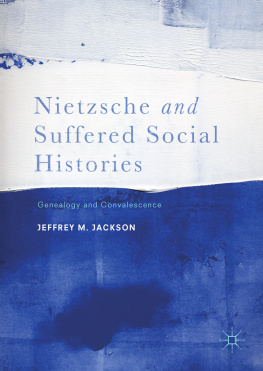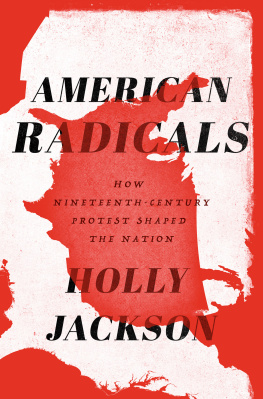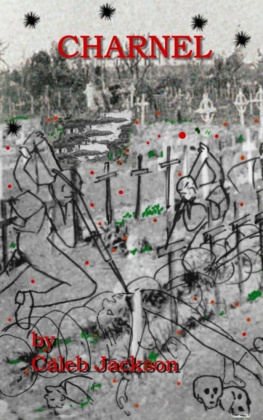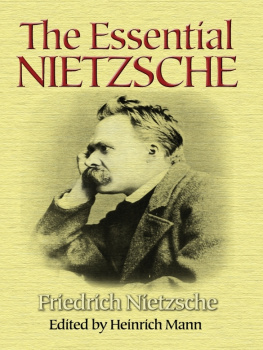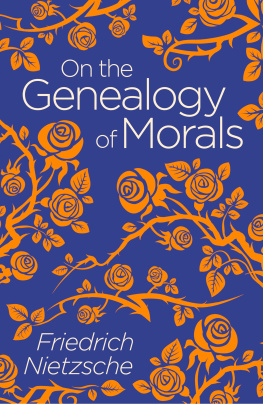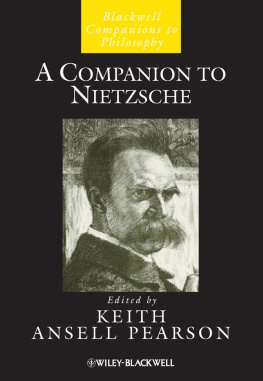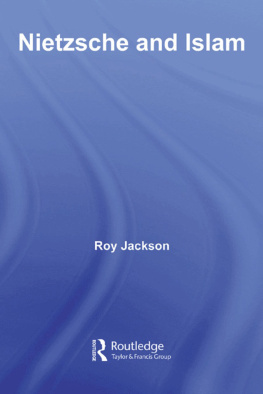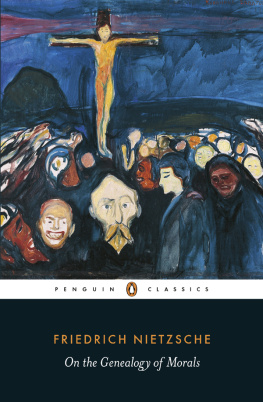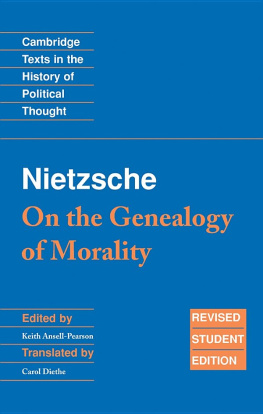1. Introduction
This book draws on psychoanalysis and critical theory to interrogate the ways in which Nietzsches work explores the suffered sociality of reflection. For Nietzsche, that which seems independentor is symbolically or metaphysically sanctified as independentis the symptom of a more fundamental socio-historically conditioned dependence. In other words, Nietzsche interrogates the way in which social history produces subjects that are allergic to their own socio-historical conditions of possibility, taking various forms of a symptomatic insistence on independence. There is therefore a reflexivity between the reproduction of social crisis and the reproduction of subjectivity, such that social critique must also be a critique of the subjectivity which is socially reproduced and which engages in that social critique. Adorno expresses a similar thought in Negative Dialectics , where he writes: Identity is the Ur-form of ideology the critique of ideology is not something peripheral but philosophically central: the critique of the constitutive consciousness itself. , reflection on social crisis implies a need for the self-critique of reflection that is a symptom of the suffered crisis it attempts to conceptualize.
On this reading, for Nietzsche, thinking is a symptom of suffered, social histories. New thinking is therefore symptomatic of new forms of suffered socio-historical life. Consciousness and will are themselves expressions of suffered, social histories and Nietzsches concepts of genealogy and convalescence might be seen as characterizing the working-through of our suffered social pasts as the condition of possibility of overcoming that past and creating a new world. Instead of an appeal to free will or other form of subjectivism which express the reproduction of the status quoNietzsche suggests that any overcoming must take a path through the ordeals of breaking from the relational histories that have left us fixated in our ressentiment . From this perspective, Nietzsches philosophy is not anti-reflection, nor the assertion of some sort of direct expression of the body or dynamism, but rather reflection avowing its conditions and limits in its imbrication within suffered, social histories.
Put another way, the main thesis of the following discussion is that Nietzsches concept of genealogy needs a concept like that of convalescence to be coherent. Genealogy is a form of thinking , but one in which thinking encounters its condition of possibility and limit in suffered history . In other words, for Nietzsche, there is a primacy placed on socially mediated suffering not merely the reflection on that suffering, but also the suffering of reflection the conditioning and rupturing of that reflection by that suffering . This includes reflection on the body, life, nature, and so on. Here then, emancipation, or however one conceives of the salutary norm asserted by Nietzsches philosophy, would need to be characterized as a mode of suffered life which includes reflection as one of its momentsas in convalescence, for example rather than as the result of a spontaneous subjective action.
Convalescence is a concept for the subjects negotiation of the objectivity which conditions and ruptures reflection. In illness, our objectivity has primacy over our subjectivity. Our vulnerable bodies suffer as objects ; our ideas are undergirded, exceeded, and ruptured by this objectivity; thoughts, goals, and desires are thwarted and interrupted, and we are forced to work - through and adapt them to an embodiment that was taken for granted. Our desire, concepts, and anticipations arise from and are destroyed by the objectivity with which they can never catch up and can never freeze or fix. In this sense, objectivity refers not merely to epistemological correspondence with the object, but to that which exceeds, conditions, and ruptures ideas. Objectivity is both reflected upon, and the suffered basis and limit of reflection. Genealogy does not simply interrogate history , but rather the non-identical character of suffered relationality; genealogy is itself symptomatic of that relationality; that is, it is symptomatic of that which it interrogates. Nietzsches genealogical narrative is, as we will see, a kind of primal scene , both found and constructed, which depicts the socio-historical conditions of reflection, and thereby holds the promise of coherent reflection: a reflection which is mediated by suffered social history . The use of these specific concepts is analyzed in subsequent chapters, but they also characterize a broader approach to other portions of Nietzsches aphoristic work.
The following discussion begins by suggesting an interpretation of Nietzsche, along with Marx and Freud , with whom he is frequently grouped, as analyses of the reproduction of purportedly independent subjects by suffered social histories. Drawing on aspects of psychoanalysis which demonstrate the negativity of social history in loss and trauma, for exampleNietzsches provocative concepts of convalescence and genealogy are explored as ways to negotiate this negativity. This can specifically be seen in Nietzsches insistence that history entails suffering that can never be redeemedsuffering that exceeds the identification and equivalence symptomatically projected upon it by the socially conditioned subject. Convalescence and genealogy represent the work of negotiating this excessive negativity and therefore provide a path toward socio-cultural transformation in the midst of a seemingly ineradicable domination. In Chap. , this is linked to Theodor Adornos negative dialectics and his thinking of subject and object . Adornos underappreciated philosophical position was formulated in contrast with prevailing trends in philosophyprimarily phenomenology and existentialismand therefore provides a fertile ground from which to interrogate the work of Nietzsche, which is so often interpreted through phenomenology and existentialism. Nietzsche, it is argued, can be said to have a certain negative dialectics of which his provisional, fragmentary, self-consciously perspectival philosophy is symptomatic.
Also, a comparison is made between the psychoanalytic problem of splitting and Nietzsches critique of dichotomous moral valuesparadigmatically between Good and Evil . In Melanie Kleins analysis of partial objects , the infant sometimes sees the caregiver as a good object and other times as a bad object, which is indicative of the paranoid schizoid position . In Chap. , Nietzsches critique of morality is analyzed through this lens, and through the perspective of D.W. Winnicott ; a parallel is suggested between, on one hand, Nietzsches valorization of the integration of lived moments into a whole (in his account of Eternal Return, for example), and, on the other, Kleins description of the infant coming to see the good and bad objects as the same object and various aspects of Winnicotts analyses of the transitional character of the facilitating environment . For all three, the integration of subjectivity with its environment is not a seamless unity, but rather an integration with the object that constitutively eludes integration.
Nietzsches main concepts have relatives in Winnicotts transitional phenomena and Kleins concept of the transition from the paranoid schizoid position to the depressive position . Nietzsches thinking is proto-psychoanalytic, but not in the sense that he is a mere precursor who was surpassed by psychoanalytic concepts. As in object relations psychology, he insists on the suffered, embodied, relational origins of human subjectivityparticularly its dominant forms which assume forms of animistic subjectivism . Moreover, reading Nietzsche in a certain way allows an extension to adulthood and to culture of that relationally mediated ordeal which Winnicott and Klein describe as typical of infantile development and the facilitating environment . This also implies a way to read the commonality between Nietzsche, Marx , and Freud . Their theories interrogate the social histories of theorizing and moral subjectivity, which is symptomatic of a troubled relationality within which that subjectivity is not master. As this troubled relationality is mediated by concrete and symbolic social arrangements, the critique of the subject implies a critique of those arrangements.

